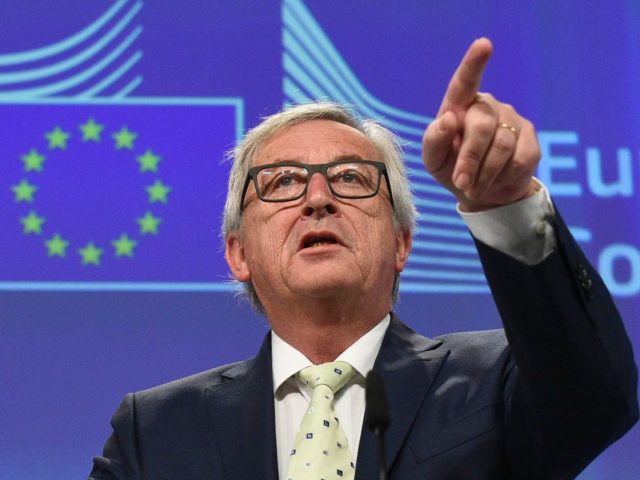The unelected president of the European Commission has urged member states to avoid holding referendums on their membership of the bloc, which is entering “a ‘last chance’ phase”.
Jean-Claude Juncker, the beleaguered head of the EU’s executive arm, conceded there was a “lack of love” for European Union (EU) governance across the continent, such that it was “unwise” to allow people to vote on their future membership.
Asked about the likely next president of Austria and his support for an in-out referendum, Mr. Juncker told Euronews the EU should not “deny or take away the people of Europe’s right to express their views”. Except, he added, “regarding referenda on EU membership, I think it is not wise to organise this kind of debate…”
He claimed he was not “concerned about the final result” of referendums, but said they should be avoided “because this will pile more controversy onto the huge number already present at the heart of the EU”.
The committed federalist, who said “Borders are the worst invention ever made” this August, also spoke about the lack of shared identity across the political bloc.
“The lack of love, we do not know a great deal about each other. What do the people in Lapland know about Sicily?” he asked. “What do the Italians in the south know about the depths of Poland? Nothing. We need to take more of an interest in each other.”
He also furiously denied that another Eurosceptic, Marine Le Pen, had any chance of being elected as the next French president. “It is a question that we should not even be asking”, he told the interviewer.
And the rise of her Front National party had nothing to do with the Brexit vote, he said. “Listen, you must not confuse people or countries. Brexit had other, profound causes which the unlikely election of Madame Le Pen in France does not. We must not confound the two, I think that is dangerous.”
Mr. Juncker was keen to avoid other nations being inspired by Brexit. “The British have had their say by universal suffrage. I hope others do not do the same,” he said.
He claimed he would not seek to assert “revenge” on the UK, but insisted “the British cannot have the same rights and advantages as citizens of the European Union.”
Yesterday, Mr. Juncker’s nemesis in the EU parliament, outgoing UKIP interim leader Nigel Farage, warned the EU there is “a lot more bad news to come”, largely linked to referendums.
He said it would be “starting in Italy, where [Matteo] Renzi will probably lose that referendum” and “Austria next Sunday, where a candidate will win the presidency who is now committed to… a referendum on their membership of the Union”.
However, up-and-coming national elections also present an opportunity for eurosceptics.
“And then we roll on to the elections next year. In the Netherlands, in Germany, and in France” Mr. Farage said, alluding the rise Geert Wilders, the Alternative for Germany (AfD) party, and Marine Le Pen.
Mr. Wilders’s Freedom Party (PVV) is currently polling as the largest party in the Netherlands; the anti-mass migration AfD party is more popular than ever in Germany; and Mrs. Le Pen’s Front National is set to make it to the final round of France’s presidential elections.
Mr. Juncker recognised the threat from insurgent eurosceptic parties in national elections, saying the EU “is entering a ‘last chance’ phase because the gulf between Europe’s citizens and the public and political action of the EU is growing ever wider…”
However, he also said: “The French and German elections do not threaten the future of Europe, as far as their citizens are concerned.”

COMMENTS
Please let us know if you're having issues with commenting.